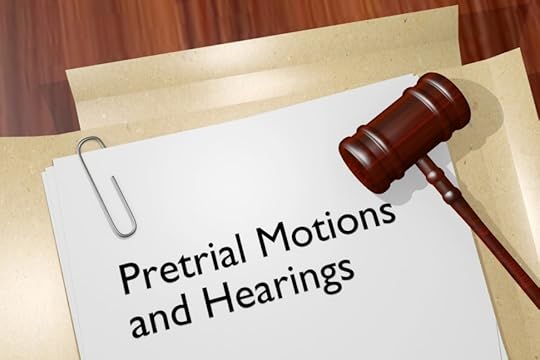Understanding the Pretrial Process in Personal Injury Cases

You may have seen court cases go to trial on TV. This is primarily the case with criminal matters, but not so much with civil actions like personal injury. In fact, only about 5% of personal injury lawsuits proceed to open court.
“Litigation is expensive, time-consuming, and unpredictable. It is often beneficial for all parties to settle the matter pretrial,” says personal injury attorney Dennis Abrams of Lowenthal & Abrams Injury Lawyers.
This raises the question: What typically transpires in the pretrial phase of personal injury cases? Read this blog for insights.
Filing the Lawsuit and Initial StepsCollecting evidence and relying on solid legal counsel during the pretrial phase is crucial for the success of a personal injury lawsuit.
The first step in any personal injury lawsuit is presenting a formal complaint to the court. This document describes the incident’s details, outlining who was involved, the injuries you sustained, and the specific damages you seek.
After filing the complaint, the defendant must respond within 30 days, either admitting or denying the claims. Having a lawyer guide you through this process is better because it is document-intensive, and any slight mistake can get your case thrown out.
Discovery ProcessAfter filing the claim and notifying the defendant, your claim’s next step is discovery. At this point, both parties share evidence that supports or opposes the claim. Interrogations, depositions, and negotiations often characterize this stage as both sides try to understand the civil matter.
A deposition typically involves the plaintiff, defendant, and their legal teams in a room and under oath. Both parties record the session as they ask each other questions for use in court. On the other hand, interrogatories are written questions answered under oath by both parties, which help gather and clarify facts from both sides.
An attorney’s input in this stage will ensure documents and information are exchanged within the confines of the law. Your lawyer can also prepare you for these sessions, ensuring that no one violates your rights.
Pretrial Motions and HearingsIf your claim lacks sufficient evidence, the defendant might file a motion to dismiss. Alternatively, both parties may file this motion when they agree to settle the matter out of court.
A qualified attorney will ensure that you adhere to court regulations when filing this motion, as a blunder can jeopardize your civil matter. The professional will also keep track of statutes of limitations for claims and appeals.
Settlement NegotiationsMost of what happens pretrial revolves around settlement negotiations. This is where both the plaintiff and defendant agree on a suitable monetary award to cover damages. Recommended practices dictate having your attorney negotiate on your behalf.
With their excellent oratory skills, your lawyer may be better positioned to articulate your damages and substantiate your owed amount. A judge and jury decide the case at trial if you reach a stalemate.
Why You Need an AttorneyPretrial is crucial in a personal injury case because it determines your case’s path. Every step, from filing the complaint and gathering evidence to negotiating settlements, impacts the case outcome. Whether you’re a plaintiff or defendant, working with a qualified personal injury attorney is not a luxury but a necessity, as they increase the chances of winning a favorable outcome.
Worried About Legal Fees?Most personal injury attorneys work on a contingency basis. This means that you’re likely not required to pay any fees upfront. The lawyer’s firm handles all the court fees and costs associated with your case out of pocket, though the exact specifics depend on your agreement.
The funds to cover these costs are recouped should the case prove successful. You’ll have signed a document to forfeit about 33 to 40 percent of your settlement as attorney fees should you win. The exact contingency fee depends on many factors, like the complexity of the case and the lawyer’s knowledge.
Disclaimer: This blog post is for informational purposes only and does not constitute legal advice. Laws may vary depending on your jurisdiction, and you should consult with a qualified attorney regarding your specific situation.
The post Understanding the Pretrial Process in Personal Injury Cases appeared first on Geek Mamas .



